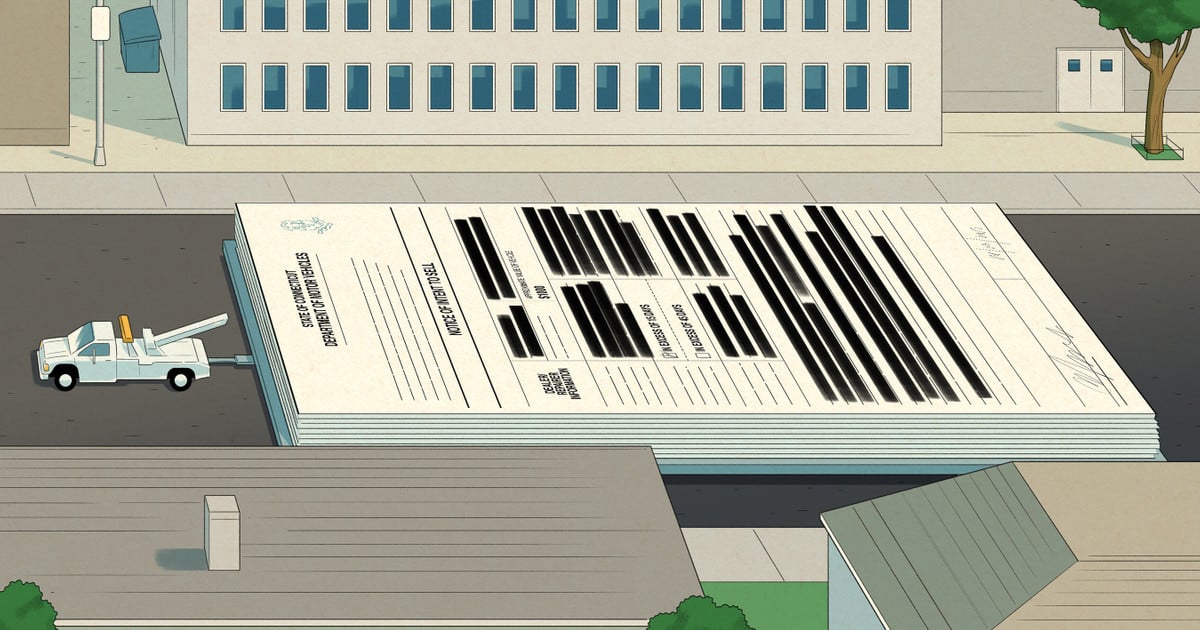Unraveling the Mystery: The Hidden Sales of Connecticut’s Towing Companies
In a surprising turn of events, the Connecticut Department of Motor Vehicles has revealed that it lacks comprehensive data regarding the sales figures of local towing companies. This revelation has sparked a flurry of questions surrounding transparency, oversight, and the regulatory framework governing the towing industry in the state. As residents and stakeholders begin to question the robustness of oversight in this essential service sector, it becomes crucial to explore the implications of this data gap.
The Role of Towing Companies in Connecticut
Towing companies play a vital role in maintaining order on Connecticut’s roads. They assist with:
- Removing abandoned vehicles
- Responding to accidents
- Providing roadside assistance
- Enforcing parking regulations
With the increasing number of vehicles on the road, the demand for towing services has surged in recent years. However, the absence of a clear understanding of the sales figures and financial health of these companies raises concerns about their operations and oversight.
The Lack of Data: A Cause for Concern
The Connecticut DMV’s admission of not having data on towing companies’ sales figures is alarming. This lack of oversight raises several issues:
- Transparency: Without data, it is difficult for the public to understand the financial practices of towing companies. Are they charging fair rates? How do their prices compare across the state?
- Regulatory Compliance: The absence of sales data makes it challenging to ensure that towing companies comply with state regulations. Are they following proper procedures when towing vehicles? Are there instances of predatory towing practices?
- Consumer Protection: With no data, consumers may be vulnerable to unfair practices. They might not know their rights regarding towing fees, storage charges, and more.
These concerns highlight the need for better data collection and reporting mechanisms within the industry.
Understanding Towing Fees and Practices
To better grasp the implications of the hidden sales of Connecticut’s towing companies, it’s essential to understand how towing fees are structured and the practices commonly employed by these companies.
Towing Fees Explained
Typically, towing fees can vary widely based on several factors, including:
- Type of Tow: Light-duty towing is generally less expensive than heavy-duty towing.
- Distance: Fees often increase with the distance a vehicle needs to be towed.
- Time of Day: After-hours or emergency towing can incur additional charges.
In Connecticut, many towing companies have set fees, but these can fluctuate based on local regulations and the companies’ pricing strategies. The lack of sales data complicates the ability to monitor these fees effectively.
Common Towing Practices
In addition to understanding fees, it’s important to consider common practices in the towing industry:
- Abandoned Vehicles: Towing companies are often called in to remove vehicles that have been left unattended for long periods.
- Accident Response: They are essential for clearing the road following accidents to ensure traffic flow.
- Parking Enforcement: Many towing companies have contracts with businesses and municipalities to enforce parking rules.
While these practices are necessary for public safety and order, they also open the door for potential abuse, especially in the absence of oversight.
The Need for Regulatory Reform
The revelation about the lack of sales data from Connecticut’s towing companies may serve as a catalyst for change. Advocates for reform argue that improved regulation and oversight can lead to better practices in the industry. Here are some potential recommendations:
- Data Collection: Establishing a database for towing companies to report their sales figures and operational practices would enhance transparency.
- Standardized Fees: Creating a standardized fee structure could help prevent overcharging and ensure fairness across the board.
- Consumer Education: Providing resources for consumers to understand their rights regarding towing could empower them against unfair practices.
By implementing these recommendations, Connecticut could foster a more transparent and fair towing industry.
Community Perspectives
To gauge public sentiment, it’s essential to consider community perspectives on towing practices. Many residents express frustration over the perceived lack of fairness in towing fees and practices:
- Unfair Towing: Some individuals have reported instances of vehicles being towed without clear justification, leading to hefty fees.
- Lack of Communication: Many residents feel that towing companies do not communicate effectively about fees and procedures.
- Desire for Oversight: There is a strong call for increased oversight to protect consumers from potential abuses.
These sentiments reflect a broader desire for accountability and fairness within the towing industry.
Conclusion: Towards a Transparent Towing Industry
The absence of data on the sales figures of Connecticut’s towing companies poses significant challenges for transparency and oversight in the industry. It underscores the need for reform and better regulatory practices to ensure that consumers are protected and informed. As Connecticut grapples with these issues, it offers an opportunity for stakeholders to come together, advocate for change, and work towards a more transparent and fair towing industry.
In moving forward, it is crucial for policymakers, towing companies, and community members to engage in meaningful dialogue. By fostering transparency and accountability, Connecticut can ensure that its towing industry serves its residents fairly and effectively, ultimately enhancing public trust in this essential service.
See more Business Focus Insider Team

